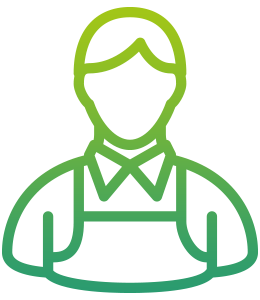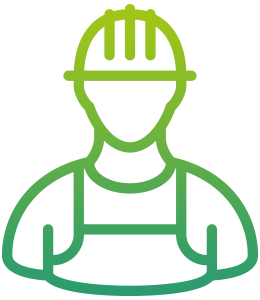Application examples for various industries:
The application examples for location-based services are almost unlimited and only gradually become clear. While the initial focus was on retail, the image that many people have of location-based services changes in the course of the digitization processes of entire industries. From a “digital mailshot”, of which many experts are already warning, location-based services are transforming into powerful applications wherever processes need to be optimized: in healthcare (hospitals, nursing homes), logistics, manufacturing industry.
What makes the applications of location-based services so valuable is the ability to collect data and track the routes and times of people and goods. These can be precisely tracked (asset tracking, person tracking). Predictions for the future can be made on the basis of this data. Statements about future events based on valid data are called predictive analytics. They enable, for example, statements to be made about maintenance intervals or customer volume and the associated necessary personnel deployment. In addition, different locations can be reliably compared (benchmarked) with respect to visitor numbers and other defined key performance indices. Of course, chain stores in particular are very interested in this. The effectiveness of marketing activities can also be reliably measured. American entrepreneur Henry Ford is said to have said: “Fifty percent of advertising is always thrown out. You don’t know which half it is.” Location-based services now make it possible to measure precisely this distinction. Retailers are therefore also talking about location-based services for retail being what Google Analytics and web analysis tools are for online retailing. An example of how the analysis of customer data can be used can be found here.









